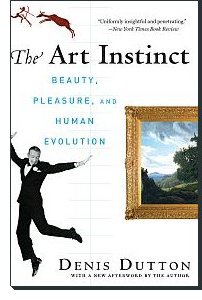- HOME
- INTRO TO THE FORUM
- BADLY WRITTEN, BADLY SPOKEN
- GETTING
TO KNOW ENGLISH - PREPARING FOR ENGLISH PROFICIENCY TESTS
- GOING DEEPER INTO ENGLISH
- YOU ASKED ME THIS QUESTION
- EDUCATION AND TEACHING FORUM
- ADVICE AND DISSENT
- MY MEDIA ENGLISH WATCH
- STUDENTS' SOUNDING BOARD
- LANGUAGE HUMOR AT ITS FINEST
- THE LOUNGE
- NOTABLE WORKS BY OUR VERY OWN
- ESSAYS BY JOSE CARILLO
- ABOUT JOSE CARILLO
- READINGS ABOUT LANGUAGE
- TIME OUT FROM ENGLISH GRAMMAR
- NEWS AND COMMENTARY
- BOOKSHOP
- ARCHIVES
TIME OUT FROM ENGLISH GRAMMAR
This section features wide-ranging, thought-provoking articles in English on any subject under the sun. Its objective is to present new, mind-changing ideas as well as to show to serious students of English how the various tools of the language can be felicitously harnessed to report a momentous or life-changing finding or event, to espouse or oppose an idea, or to express a deeply felt view about the world around us.
The outstanding English-language expositions to be featured here will mostly be presented through links to the websites that carry them. To put a particular work in better context, links to critiques, biographical sketches, and various other material about the author and his or her works will usually be also provided.
I hope you’ll enjoy the new selections that will be presented here each week.Joe Carillo
Learning life’s precious lessons from growing chickens
Some people spend precious years of their life on a moral philosophical quest, but Peter Lennox would rather keep chickens and watch them go through their chicken lives. Lennox, a senior lecturer in spatial perception in artificial environments and director of the Signal Processing and Applications Group at the University of Derby, says that doing so has taught him a great deal about behavior, ethics, evolution, and what he calls the psychopathic nature of modern “efficiency.”
In “Pecking Order,” an article he wrote for the February 4, 2010 issue of the Times Higher Education of UK, Lennox says that from chickens, he learned such simple lessons as that “competition without cooperation is nonsense; you can’t win by simply eradicating all the opposition—that’s a pyrrhic victory.”
From watching chicken behavior, he has also learned the importance of hierarchy: “Everyone should have a place in the pecking order. Strive for your place in life, not someone else’s. Someone else’s bread isn’t necessarily tastier than your own. Envy will cost you dearly.”
Lennox concludes: “Reward and risk go hand in hand. The top cockerel has to take the biggest share of both. A flock can manage without a cockerel, but a cockerel without a flock is nothing.”
Read Peter Lennox’s “Pecking Order” in the Times Higher Education (UK) now!
BOOK REVIEW:
The Art Instinct by Denis Dutton is a provocative book that attempts to do for art what Stephen Pinker’s The Language Instinct did for linguistics. It combines art and evolutionary science to come up with a provocative new view of the arts, from painting to literature to movies to poetry. Dutton, a professor of the philosophy of art at the University of Canterbury in New Zealand, contends that human tastes in the arts are evolutionary traits shaped by Darwinian selection, not just “socially constructed” as the past century of art criticism and academic theory would like us to believe.

Carlin Romano, general assignment reporter for The Philadelphia Inquirer and now critic-at-large of The Chronicle of Higher Education, says in his review of the book that Dutton “combines a magisterial command of the history of aesthetics back to Plato and Aristotle, a total commitment to clarity and verve in writing, and an up-to-the-minute grasp of almost every trend on the contemporary cultural scene. Result? A philosophy of art for the ages.”
In a review of The Art Instinct for the March 2, 2009 issue of Newsweek, James Q. Wilson, former professor at Harvard University and University of California at Los Angeles and author of The Moral Sense, says that Dutton’s book shows “his masterful knowledge of art and his compelling prose makes it a thing of beauty.”
Read James Wilson’s review of Denis Dutton’s The Art Instinct in Newsweek now!






